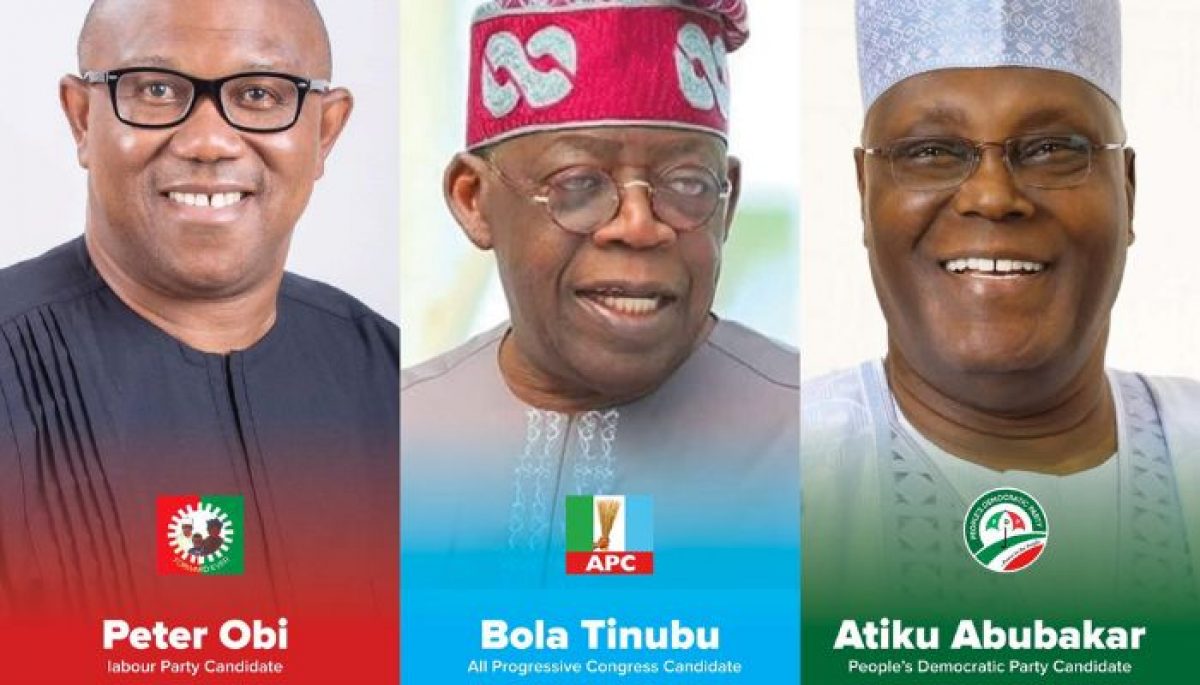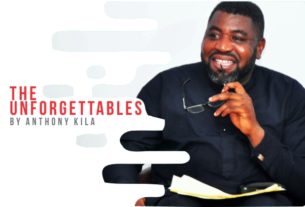Salihu Moh. Lukman
Somehow, unknown or unaware to key political opposition leaders, the strength or confidence of President Asiwaju Bola Ahmed Tinubu is derived from their inability to open themselves and honestly commence negotiation to build a united front ahead of 2027. Key opposition political leaders refer mainly to Alh. Atiku Abubakar, Mr. Peter Obi and Sen. Rabiu Musa Kwankwasau. These are leaders who have paid their dues and are still actively nursing ambitions to become President of the Federal Republic of Nigeria. They were Presidential candidates in the last 2023 election. If anything, President Asiwaju Tinubu and APC won that election on account of their failure to unite under one political platform.
To be fair to them, they all agree that the performance of President Asiwaju Tinubu in the last one year since his assumption of office has been disastrous. Unfortunately, their agreement fails short of making them accept to work together towards building a common platform, capable of mobilising and uniting Nigerians towards defeating President Asiwaju Tinubu and APC in 2027. Their inability to commence proper political negotiations is emboldening President Asiwaju Tinubu to continue with his crazy impulsive visionless governance experiment, unperturbed with the harsh reality it has created for Nigerians. It is quite worrisome that notwithstanding the dangers before the nation, our key opposition leaders believe in business-as-usual approach to politics whereby the most important thing in politics is the management of their personal ambitions to become President.
At this point, it is important to appeal to our key opposition leaders to wake up and try to be compassionate and appreciate the gravity of the dare heart situation facing citizens. The big question is whether, on account of personal ambitions, we want to continue to mismanage our reality and sacrifice every opportunity, which ideally democratic system offers. The opportunity that a democratic system offers is that any government, which fails its citizens should be voted out. No doubt, by any standard, both President Asiwaju Tinubu and APC have failed Nigerians. It is quite disheartening that a party, which has come with all the promises of changing Nigeria for the better has ended up ruining the country. From the economy to problems of insecurity and corruption, which were the three cardinal challenges APC and former President Muhammadu Buhari promised to tackle in 2015, what we had in 2015 is child’s play today.
If with all the trust Nigerians invested in former President Buhari and President Asiwaju Tinubu ended up producing the disastrous outcome of today’s reality whereby across all shades and divides, we are faced with the current existential crisis, why should any leader be trusted? The hard truth is that both former President Buhari and President Asiwaju Tinubu have turned out to be self-centred and unable to produce the needed leadership to pull the country out of its current challenges. Certainly, all of us who were actively in support of these leaders never emerging they will be such colossal failure. With such poignant experience, it is very troubling. Troubling, largely because the basis of political relations with these leaders was limited to supporting their personal ambitions to become President. Once they achieve that, they turn out to lack the humility and respect for subordinates. They failed to consult and even destroyed all structures for consultations, including demolishing structures of the party that made it possible for them to achieve their personal ambitions.
We have moved from being opposition politicians to becoming a ruling party since 2015. Sadly, as a ruling party, we have become worse than the PDP we defeated in 2015. Unlike in the days of the PDP that allowed for opposition parties to function, we are today confronted with the ugly and depressing reality whereby all the opposition parties are being manipulated into deeper crisis of existential nature. For instance, the PDP has a trojan horse in former Governor Nyesom Wike who is holding the party by juggler and is ready to pull the party down to its political grave of irrelevance. The Labour Party is marred with internal leadership problem with no end in sight. Although stakeholders of the party met to appoint a caretaker committee, the legality of the action is suspect. The NNPP is having its own share of leadership challenges and somehow only hoping to survive what is clearly an orchestrated attempt by the invincible APC forces to muscle it out of Kano State, its only political hold.
In all these, Alh. Atiku Abubakar, acting through the PDP Governors, hopes to reclaim the PDP. Mr. Peter Obi and the Labour Party stakeholders with no legal foot want to take control of the Labour Party. Sen. Rabiu Musa Kwankwasau is hopeful that he can overcome the APC onslaught against him in Kano. While the common enemy of all of them is the APC, and although conscious of all these leaders, alarmingly, the three leaders still think that they can succeed individually. I hope I am wrong. But I am increasingly becoming agitated that these leaders will, if not moderated, take us on the same old route of mismanagement due to personal ambitions. The hard truth is that if we allow them to lead us on that route, they have little or nothing to lose. But as Nigerians, we have everything to lose. What is it that we can do to divert these leaders away from the old route of mismanaged personal political ambitions?
Beyond the key opposition leaders, we may perhaps need to put more focus on the second-generation opposition leaders. Who are these second-generation opposition leaders? These are the Yomi Osinbajos, Rotimi Amaechis, Kayode Fayemis, Nasir El-Rufais, Rauf Aregbesolas, Aminu Waziri Tambuwals, Ibikunle Amosuns, etc. There are also the tendencies of old political leanings such as the old CPCs, the PRPs and the increasingly resurgent SDP. Part of the reality of all these tendencies is their strong loyalty and unpremeditated loyalty to old block of leaders, which the key opposition leaders are part of. Their unpremeditated loyalty to the old block is limiting their capacity to initiate organisational drive towards the emergence of an alternative political platform. More than anything, getting these second-generation of opposition leaders to vacate the current disposition of unpremeditated loyalty is the key to the unconstrained growth of Nigeria’s democracy.
The challenge is how can Nigerians push these second-generation of opposition to work together and unite to produce the desirable alternative political formation that can give and embolden confidence that a better Nigeria is possible once President Asiwaju Tinubu and APC is defeated in 2027? Part of the big hurdle is also that these second-generation of politicians are contemptuous with themselves and aggrieved with each other. To that extent, they prefer to live in isolation even if it means living with the danger of continuing the old route that has failed Nigerians. Like the key opposition politicians, somehow, the second-generation are also insulated by the consequences of failure. Whether President Asiwaju Tinubu and APC remain in power in 2027 is not as threatening to the second-generation of opposition politicians.
This simply highlights the fact of lack of organic connection with Nigerians. Both the key opposition politicians and the second-generation opposition politicians seem to be unconnected with Nigerians, which perhaps is the main reason why despite the realities and dangers facing the nation today, docility is the hallmark of politics in Nigeria. How do we get out of this docile reality? How do we force our opposition leaders to start negotiating a new reality that will unite them and unite Nigerians toward bringing about a new prosperous nation is the big question? From our experience with the APC, Nigerian are not interested in just the defeat of APC and President Asiwaju Tinubu in 2027. Clearly, what Nigerians are interested in is the defeat of APC and President Asiwaju Tinubu to produce a strongly democratic nation that is responsive to the needs of Nigerians.
For that to be achieved require the emergence of a strong political party that can regulate and direct the conduct of all elected representatives, especially the President of the Federal Republic. Nigerians are wary of just supporting the ambition of any person simply because we are unhappy with the performance of a serving President. What is it that account for the failure of APC, former President Buhari and now President Asiwaju Tinubu? What is absence in the organisation of APC that made it worse than PDP? How can we produce a new party that can overcome the weaknesses of APC and guarantee that elected representatives produced by the new party, including the President will not turn out to be emperors and overlords?
How can we have a party that would have the mechanism to manage political competition such that political rivalry is transformed into partnership and team building credentials? Because political competition and rivalry are taken for granted, leaders, including opposition politicians are indulging themselves with the destructive mindset of relating with each other based on Godfather and Godson mentality. Sadly, that is becoming a big albatross even to personal security and safety of political leaders. The second-generation of opposition political leaders are the worse off this reality. The key opposition leaders have had enough dosages of sabotages. The fact is, so long as political relations is solely based on personal political ambitions, the capacity to build Nigerian democracy will be weak and the potential to build a political party that can mobilise Nigerians to defeat President Asiwaju Tinubu and the APC will be a far cry. Above all, Nigeria’s so-called democracy will continue to produce leaders whose worse credentials will only surface after they assume office just like what President Asiwaju has turned out to be.
It is therefore incumbent on both the key opposition leaders and the second-generation opposition leaders to demonstrate some measure of selflessness by commencing open and sincere negotiations towards building an alternative political platform that will change the route of politics in Nigeria. Once, with all the traps, political and legal experience before the current leading opposition political parties, our key opposition leaders continue to imagine that they can achieve their personal ambitions to win election, it simply means they are incapable of developing Nigerian democracy and make it capable of resolving the nation’s challenges. And so long as the second-generation opposition remained beholding with their unpremeditated loyalty to the key opposition leaders, they are as complicit as the key opposition leaders.
The incontestable truth has to be told, if President Asiwaju Tinubu and APC are to be defeated in 2027; if the defeat of President Asiwaju Tinubu and APC is to produce a new good beginning for Nigeria; if the new beginning being envisioned is about harnessing the potentials of our diversity as a nation; above all, if it is about building a party that can have the capacity to overcome the shortcomings of the past; then it has to be based on the strong acceptance of our difference, which is a function of the capacity of the key opposition leaders and the second-generation political opposition to work together irrespective of personal ambitions. This is a function of capacity to reconcile with each and put the nation ahead of personal ambitions. Building a political party that can regulate the conducts of elected representatives, including the President, can not be achieved through unpremeditated loyalty. Nigeria’s democracy has produced disastrous leadership reality whereby the worst and unimaginable persons have become leaders. Is it what our key opposition leaders want to allow to continue? Is it what the second-generation opposition leaders want? Certainly not. But will they work to change the course of history?
How the key opposition leaders manage themselves and perhaps seeks to unite and work together is a key determinant of a ground shift in building a new united front for the country is the task ahead. Whether the second-generation opposition politicians will remain beholden, or they will seek to reconcile with themselves and force the key opposition leaders to unite and build a strong political party capable of transforming Nigerian democracy to produce a responsive government that can meet the expectations of Nigerians in every sense is the critical issue. However defined, this is a function of negotiations, which opposition political leaders, whether it is Alh. Atiku Abubakar, Mr. Peter Obi, Sen, Rabiu Musa Kwankwasau or the second-generation opposition leaders are expected to meet is the challenge. Will they live up to this expectation?
Time is of essence. If no public negotiation commences to produce the desirable alternative political platform capable of guaranteeing a new democratic dispensation, then it is as good as signing off for this democracy in Nigeria! May God touch the hearts of our key opposition leaders and our second-generation opposition leaders to accept to reconcile with themselves, forgive each other and work together for the development of Nigeria’s democracy. May God Almighty make Nigeria’s democracy to deliver a strong nation with selfless leaders who can manage our diversity and transform it into strong responsive system! Amin!!!






